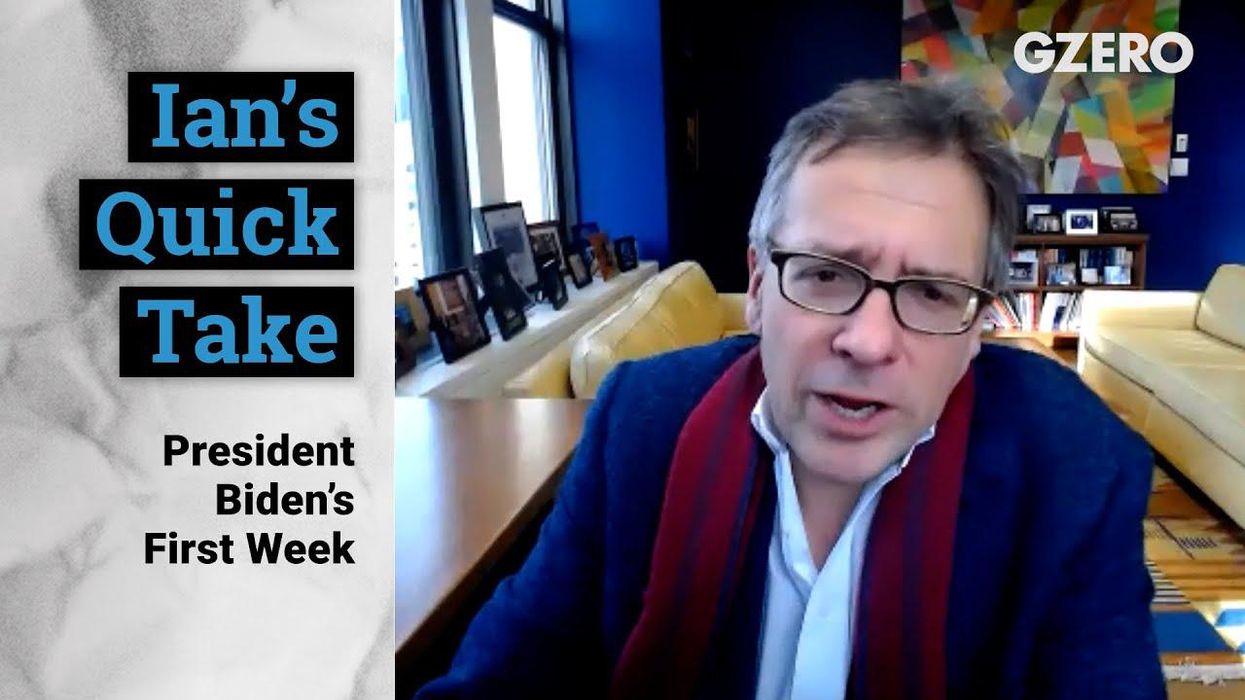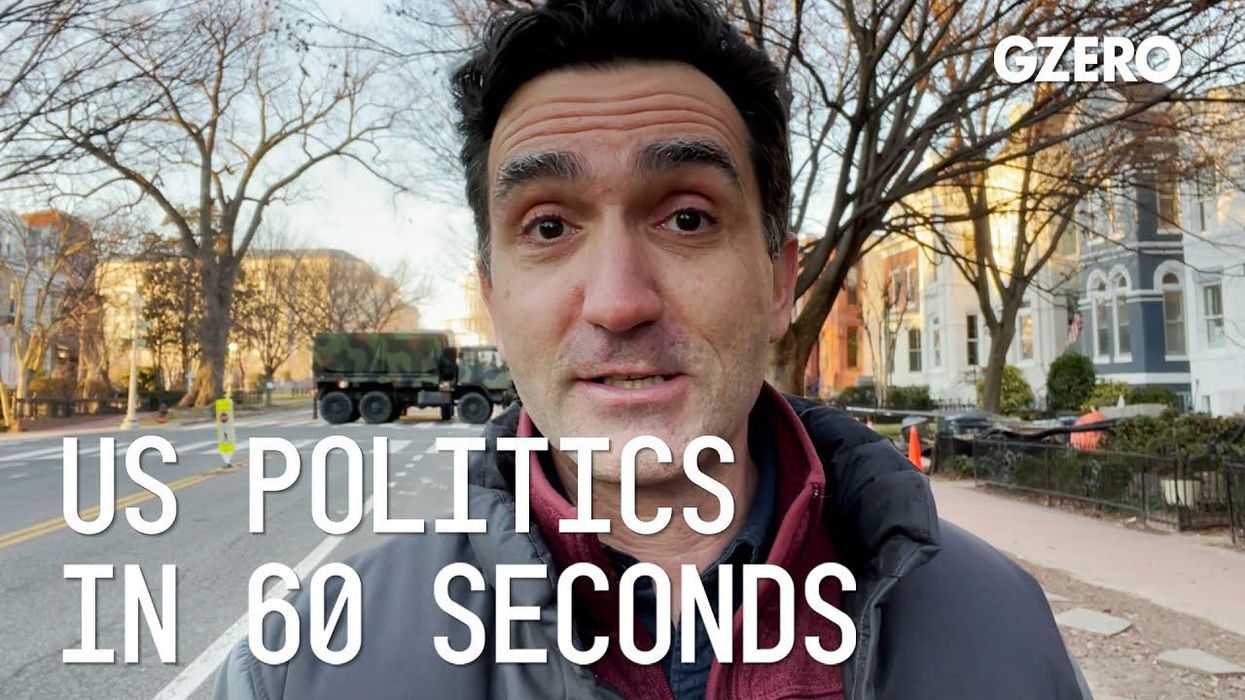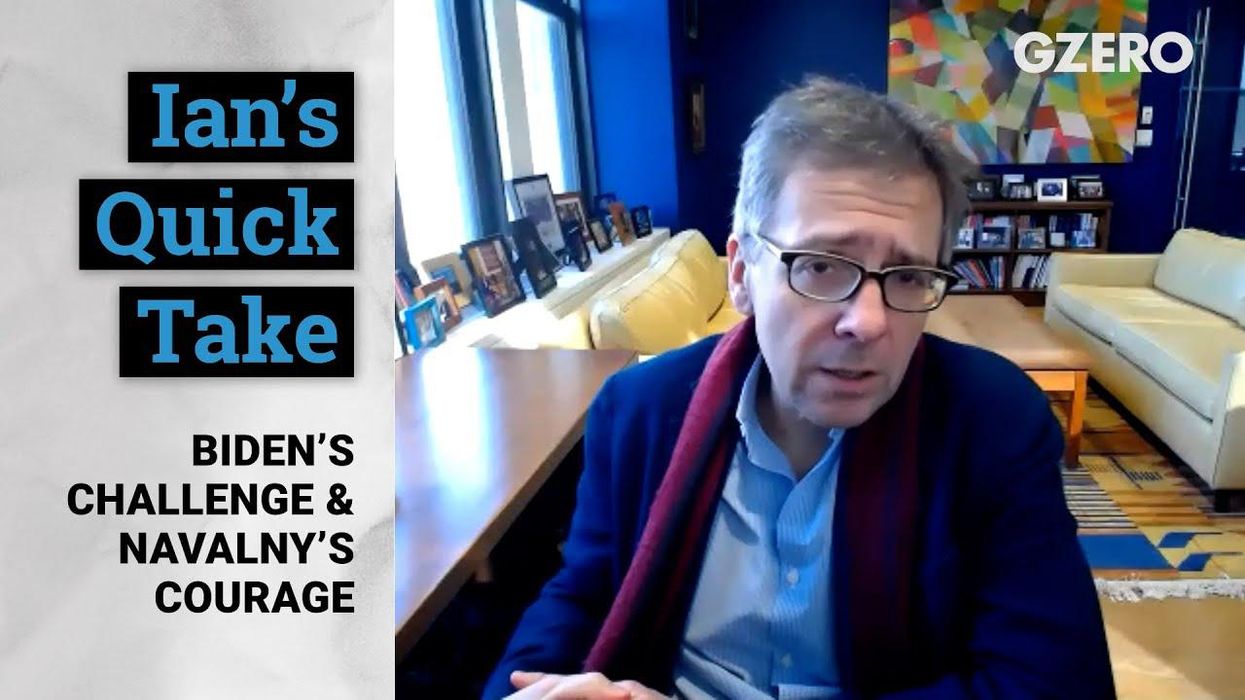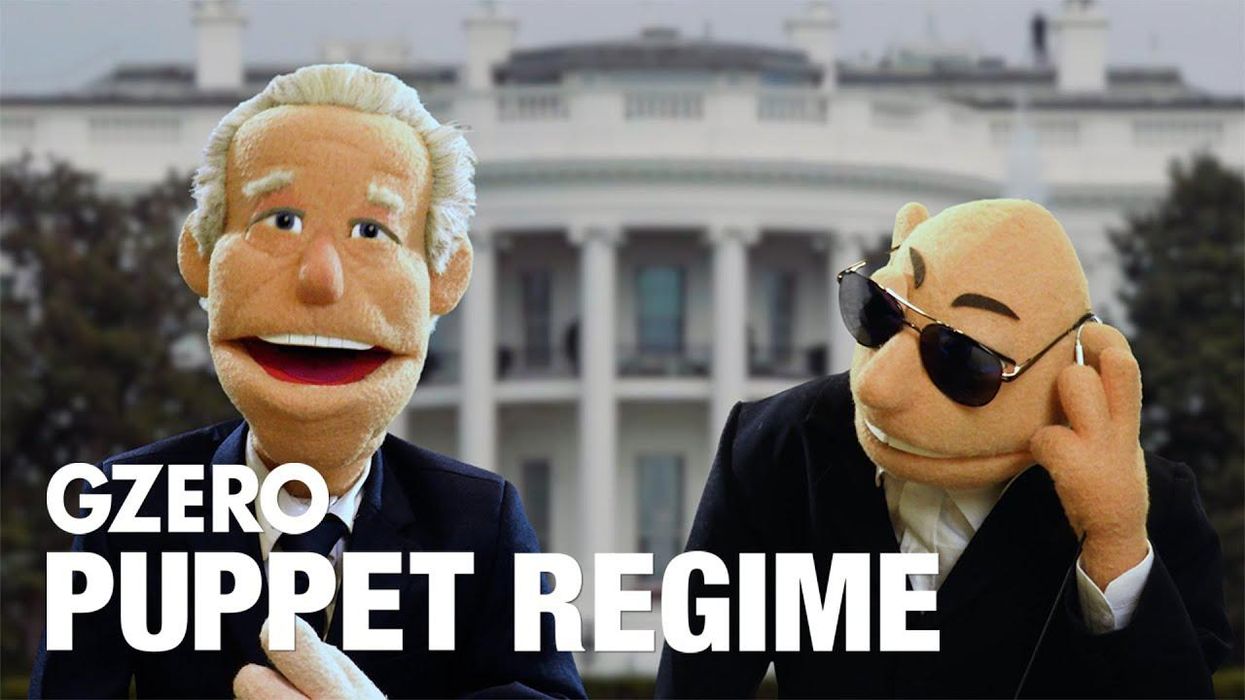Quick Take
Quick Take: President Biden's first week
Ian Bremmer's Quick Take: President Biden has had a week, almost a week, right? How was it? How's he doing? Well, for the first week, I would say pretty good. Not exceptional, but not bad, not bad. Normal. I know everyone's excited that there's normalcy.
Jan 26, 2021




